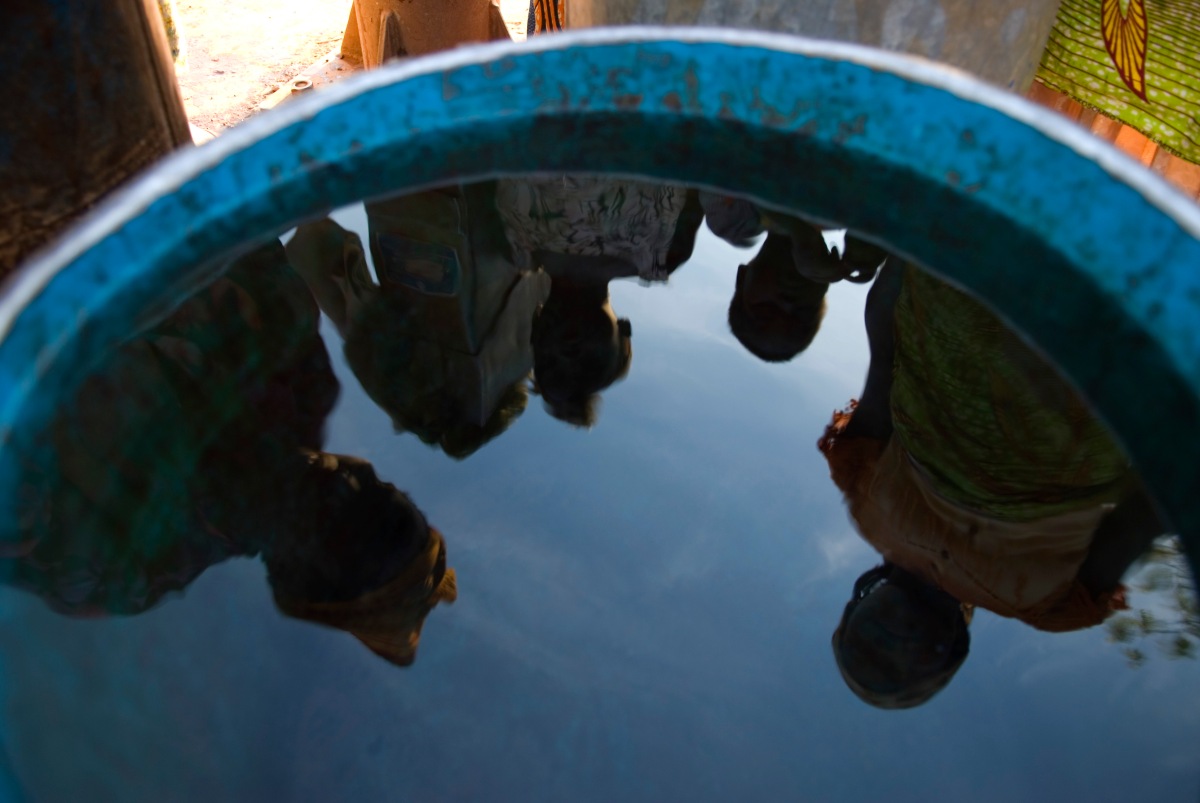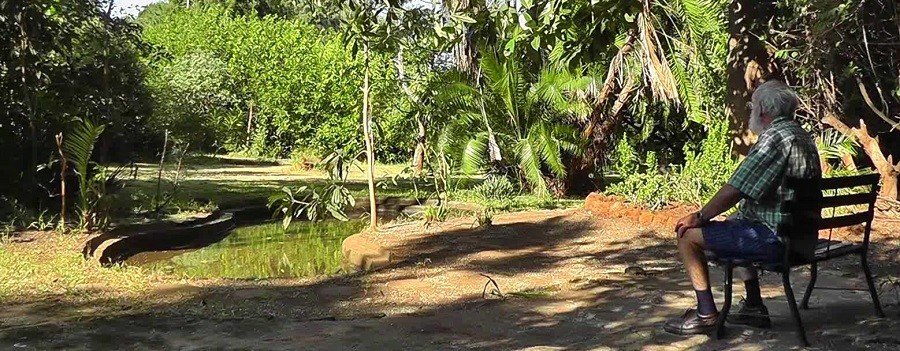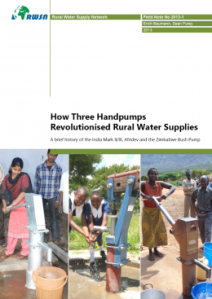This blog is based on the Accountability for Water action and research programme funded by the William and Flora Hewlett Foundation and managed by the Partnership For African Social and Governance Research (PASGR), supported by Water Witness International, KEWASNET and Shahidi Wa Maji. The full webinar summary is available here.
On 15th December 2022, a global webinar was held to discuss the critical importance of accountability for water. During the webinar, a partnership of organizations led by PASGR and Water Witness presented the findings of their Accountability for Water research program, which aimed to identify specific actions to strengthen accountability in different contexts. The programme partners involved in the research include KEWASNET, Shahidi Wa Maji, WaterAid, Water Integrity Network, End Water Poverty, IRC, and World Bank. Dr Pauline Ngimwa and Dr Muthio Nzau of PASGR introduced the webinar.
Dr Tim Brewer of Water Witness gave an overview of the research programme which started with the global review of evidence carried out in 2019-2020. According to this review, 80% of the research papers on accountability found that interventions contributed to improved water, sanitation and hygiene (WASH) services and water resource management (WRM). Common lessons emerged with clear recommendations for action by governments, civil society, donors and others. While a key lesson is that accountability is context specific, an analytical framework based on the “5 Rs of accountability” can be used to identify specific challenges and opportunities within this framework – the ability to review, explain, and report performance against rules, responsibilities, and obligations, and to react constructively to improve performance through sanctions, incentives, or corrective measures.
The review identified a series of knowledge gaps and questions, including gender, donors, government responsiveness, measurement, and civic space. Based on this analysis, 14 Professional Research Fellows (PRF) working in the water sector in Ethiopia, Kenya, Tanzania, Zambia, Liberia, and Zimbabwe from a range of government, civil society and academic institutions investigated accountability issues in their own contexts. The full list of research topics and researchers is at the bottom of this blog.
The following key takeaways for governments, civil society organizations (CSOs), and donors were drawn from a compilation of recommendations from the research projects .Presenters included Dr Firehiwot Sintayehu (Addis Ababa University); Eunice Kivuva (CESPAD); Chitimbwa Chifunda (WaterAid Zambia), The full list of research topics and researchers at the end of this blog demonstrates the depth and breadth of evidence underlying these recommendations .
Three key takeaways for governments
- Laws, policies and accountability mechanisms are essential to support accountability. However, lack of clarity and consistency between sectors and levels, a lack of knowledge and capacity about the laws and mechanisms, and weak enforcement often undermine these. Therefore, the key recommendations are to:
- Harmonise, strengthen, and execute laws and policies for water resources and WASH at national and subnational levels,
- Strengthen accountability systems and relationships: mechanisms, standards, regulation, monitoring, stakeholder engagement and enforcement including for the private sector,
- Build capacity on accountability, develop an accountable outlook and de-politicise accountability systems.
- Clear roles and responsibilities and better coordination: Accountability mechanisms are often let down by poor coordination, unclear or conflicting roles and responsibilities and widespread lack of enforcement. Key actions required are to:
- Clarify institutional roles and responsibilities between actors for WASH and WRM – eliminate conflicts in functions,
- Separate implementation and regulatory institutions,
- Strengthen horizontal and vertical institutional and sector coordination across water users through enforceable accountability systems and mechanisms.
- Informed engagement with citizens and users: All the researchers found that effective engagement with citizens, citizen groups and water users is essential for accountability but wanting. To address this governments need to:
- Introduce or strengthen accountability mechanisms such as public hearings and citizen oversight panels,
- Provide Information, education, and mobilisation for communities ensure access for marginalised groups,
- Support civil society to vertically integrate social accountability initiatives into decision making at different levels,
- Support coordination amongst actors to increase the capacity of rural women and marginalised communities to participate in problem analyses and decision-making processes.
Three key takeaways for civil society,
- Activate and institutionalise effective citizen oversight mechanisms. As well as the government actions to strengthen engagement with citizens and water users Civil society organisations need to support this, they should:
- Advocate for more legally institutionalised avenues of citizen oversight,
- Ensure that citizens’ monitoring and advocacy initiatives are vertically and strategically integrated in decision making at all levels,
- Carry out budget tracking throughout the whole cycle from planning to expenditure.
- Build capacity, empowerment and organise communities. A very common cause of weak accountability is the low levels of knowledge and capacity of water users about their rights, the laws and responsibilities around water provision and resource management, and how they can use accountability mechanisms. Civil society organisations need to:
- Build capacity on accountability mechanisms and support their use,
- Strengthen grassroots user groups and associations to participate in decision making,
- Support civil society and water users, especially women, to move up the Participation ladder from token participation to active participation, decision making, and control.
- Build on what works, like budget tracking, evidence-based advocacy, litigation. There is growing knowledge about successful strategies for strengthening accountability. This research has helped to strengthen a community of practice on accountability and identify examples that others can learn from. Key lessons for civil society are to:
- Strike a balance between constructive and critical approaches to advocacy,
- Bring strong evidence for advocacy,
- Raise awareness of WASH and WRM issues amongst all stakeholders including citizens, government and development partners.
Four key takeaways for donors and private sector
- Support governments and CSOs to strengthen accountability frameworks, monitoring and enforcement. Donors can provide financial and political support for the actions for governments and civil society mentioned above. They need to:
- Support governments on WASH and WRM accountability actions as above,
- Support CSO actions as above,
- Support good governance and democratic space for citizens’ voice. Citizens’ engagement is critical to enhancing accountability,
- Invest in women’s participation and reaching marginalised people,
- Strengthen political will for accountability. Donors can influence government priorities,
- Invest seriously in sustainability.
- Water investments need to go beyond projects. They need to:
- Go beyond procedural & financial accountability. For example strengthen basins planning to ensure responsible industrial water use,
- Support budget tracking through the cycle – budget tracking is an effective tool to improve budget performance,
- Invest in appropriate technology to support accountable and responsive services, For example digital monitoring of services and water treatment technology to prevent pollution of water resources.
- Enhance due diligence. Researchers found examples of very weak accountability in economic uses of water by industrial and agricultural actors. Donors and private investors can help strengthen accountability by requiring:
- Stronger due diligence of companies in relation to water use,
- mandatory reporting on water,
- promoting and enforcing the Polluter pays principle
- Be accountable! Donors are major investors in the water sector but often do not fulfil their commitments. For example in Zambia the WASH sector is 80% funded by Donors but only 29% of that was tracked through the budget.
- Accountability Mechanisms are needed to enable Governments and CSO to hold Donors accountable for their commitments.
Discussion and next steps
During the webinar, Sareen Malik from KEWASNET, emphasised the importance of legislation to strengthen accountability mechanisms. NGOs can play an important role to advocate for this and bring stakeholders together in Joint Sector reviews as a critical mechanism for accountability, monitoring and reporting.
Martin Atela of PASGR reflected on the role of politics in undermining accountability and suggested that political interference can be mitigated by greater clarity on roles and boundaries of ministerial responsibilities. He also emphasized the need to find ways to work with political elites so they see the value in change
Next steps involve joining the community of practice on accountability for water, to continue learning from experience and to advocate for commitments to strengthen accountability.
Research partners are organising an event at the UN Conference on Water 2023: “Where is the accountability” on Tuesday 21st March, driving a greater emphasis on governance and accountability. This needs to be front and centre of all discussion.
The Research programme is managed by the Partnership for African Social and Governance Research (PASGR) and Water Witness International with financial support from the Hewlett Foundation.
More information about the research is on the website including findings from the global review of evidence, recorded presentations from webinars at World Water Week 2022 in Stockholm, presentations from country specific webinars, and summary briefings of all the research topics. www.accountabilityforwater.org
List of Research topics, Professional Research Fellows and host institutions
Ethiopia
- Government Dynamics of Accountability in Ethiopia, Mulugeta Gashaw, Water Witness Ethiopia
- Political Economy Analysis of water governance, Asnake Kefale
- Risks and opportunities for growth in Ethiopia’s textile and apparel industries, Esayas Samuel
- Wastewater management in upstream catchment of ARB, Yosef Abebe, Addis Ababa University and Ministry of Water and Energy
- Accountability of the One WASH National Programme of Ethiopia, Michael Negash, PSI
- Towards a sustainable management of faecal sludge: the case of Addis Ababa, Tamene Hailu
- Alwero Dam governance, Firehiwot Sentayu, Addis Ababa University
Kenya
- Government Dynamics of Accountability in Kenya, Dr Tiberius Barasa
- Enhancing coordination for accountability and sustainability in water resources management; a case of Kerio sub-catchment in Baringo rift valley basin. Eunice Kivuva (CESPAD)
- Kakamega County Water and Sanitation Company, Kenya. Mary Simiyu, Kakamega Water Service Provider
- Rural Women and water decisions in Kwale and Kilifi Counties, Felix Brian, KWAHO
- Strengthening accountability in solid waste management through incentives and penalties in Naivasha, Kenya, Naomi Korir, Sanivation
Tanzania
- Government Dynamics of Accountability in Tanzania, Dr Opportuna Kweka
- Assessment of Gender Power Relations and Accountability in Community Based Water Supply Operators in Selected Water Basins of Tanzania, Pitio Ndyeshumba, Institute of Lands
- Regulatory and Legal Accountability for Water Pollution in Tanzania: The Case of Msimbazi River Basin in Dar es Salaam City, Mwajuma Salum, University of Dar Es Salaam
- Opportunities and challenges of accountability claiming in Tanzania’s water sector, Dr Parestico Pastory, University of Dodoma
Zambia
- What makes budget advocacy an effective accountability tool, Bubala Muyove, NGO WASH Forum and Chitimbwa Chifunda, WaterAid Zambia
Zimbabwe
- Assessing the effectiveness and impact of statutory accountability mechanisms to improve water service provision and catchment management, Mable Murambiwa, Combined Harare Residents Association, Zimbabwe
Liberia
- Accountability Challenges in The Liberia Water-Supply Sector: LWSC in Robertsport and Kakata, Timothy Kpeh, United Youth for Peace, Liberia
About the author: This blog is authored by Louisa Gosling, freelance specialist in accountability, rights and inclusion in WASH, previously working with WaterAid and as chair of RWSN.







